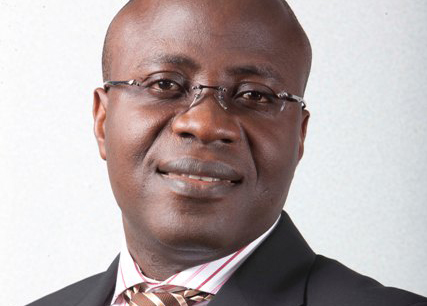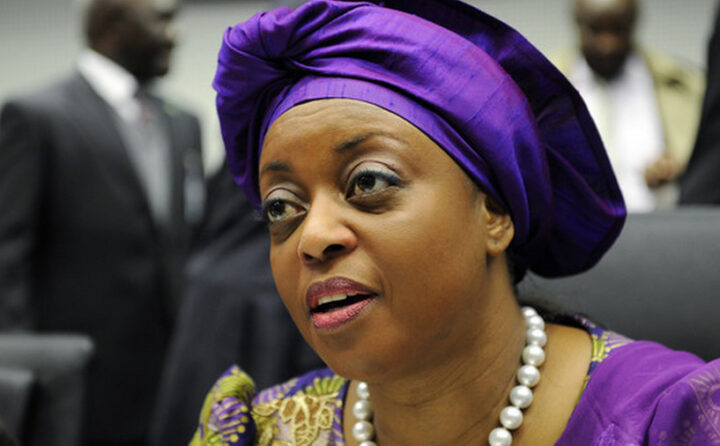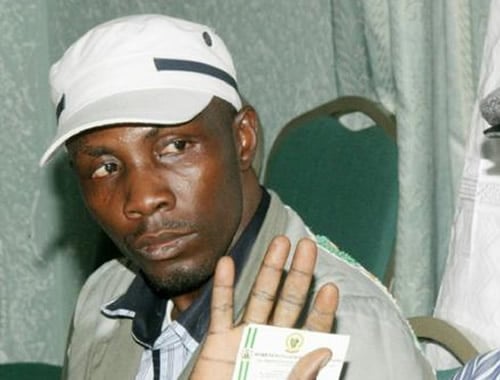For ages, issues of transparency have dogged Nigeria’s extractive industry — particularly the oil sector.
The Nigeria Extractive Industries Transparency Initiative (NEITI) was set up in 2004 to ensure due process, transparency and accountability in payments by the companies and revenue receipts by the federal government. President Muhammadu Buhari on Tuesday named Waziri Adio as the new executive secretary of the agency, but how much do you know about the cerebral journalist whose career has covered both private and public sectors in the last 24 years?
TheCable takes you on a brief tour of his life.
1. Born in Iwo, named in Yobe
Although he was born on June 13, 1968 to parents from Iwo, Osun state, he got his name, Waziri, from his grandfather who had sojourned in northern Nigeria, working and living for years in what is today’s Yobe state. Waziri is a very common name in the Yobe-Borno axis and his grandfather must have fallen in love with the name. The full name of the new NEITI chief executive is: Waziri Onibiyo Adebowale Adio. He married Sandra from Edo state in 2001 and they are blessed with three children.
Advertisement
2. He almost became a tailor!
After finishing his higher school certificate in 1986, he struggled to secure university admission because he did not score enough points to be offered his preferred course – mass communication. He tried for two more years, during which he took to farming. His grandfather advised him to relocate to Abidjan, Cote d’Ivoire, to learn tailoring if he still did not get his preferred course by 1988. However, Adio finally got admission to read mass communication at the University of Lagos that year. Destiny obviously tailored a different robe for him.
3. Best from gun to tape
Adio was the best undergraduate in the faculty of social sciences from his first year in the university, meaning he got the vice chancellor’s scholarship. This was a great economic relief as the resources allowed him to continue his education even if on a shoe-string budget. He was the best student in mass communication every year, from 100 level to 400 level. This also meant the scholarship funds kept trickling in till the very end. He was also editor of Unilag Sun, the university’s newspaper, and editor of Masscope, the magazine, both produced by the mass communication department.
4. He missed first class by the tiniest fraction
Although he was the best graduating student of the faculty of social sciences in 1992, the icing on the cake would have been a first-class degree, but his cumulative GPA was 0.01 short! He was allegedly marked down in a course in controversial circumstances. It was said then that the department debated on whether to upgrade him or not. Nevertheless, everyone recognised him as a first-class brain, even if academic politics denied him the official grade.
Advertisement
5. He was once a ‘guerrilla’ journalist
From 1993 to 1995, Adio was a reporter with TheNews/TEMPO group known for adopting “guerrilla journalism” tactics during the military era. The publications were target of harassment and intimidation by security agencies, and the staff had to go underground to be able to operate. They held meetings at bus stops and the national stadium in Lagos as their offices were often under lock and key. One of his colleagues, Bagauda Kaltho, soon disappeared and a picture of his dead body was released by the police two years later. Adio had a brush with soldiers in 1994 when he wrote an “alternative report” on the activities of Musa Bamaiyi, the then chief executive of the National Drug Law Enforcement Agency (NDLEA). Bamaiyi did not find it flattering. The young reporter narrowly escaped the gulag when soldiers stormed the office in search of him. He worked at THISDAY, where he was assistant editor, political editor, New York bureau chief, editorial page editor and columnist from November 1995 to August 2003.
6. He loves his books
Adio has devoted much of his life to learning. Apart from his first degree in mass communication, he has two master’s degrees — one in public administration, from the Kennedy School of Government, Harvard University (2009) and the other in journalism from Columbia University, New York (1999). He was a Mason Fellow in Public Policy and Management (2008/2009) and Nieman Fellow in Journalism (2001/2002).
Other courses and trainings he has attended are: leaders in development: managing change in a dynamic world at Harvard, June 2015; leading professional service firms, 2010, at Harvard Business School; essentials of public sector consultancy, 2010, at Public Administration International, London; training on performance in presentation, London, 2007, at the Central School Of Speech And Drama, London; and training on strategic communications, 2006, at UNDP Virtual Development Academy, Bangkok, Thailand.
7. He is not a new comer to NEITI
He was director of communications at NEITI from May 2007 to June 2008, when he resigned to pursue his second master’s degree in the US. He coordinated the last-minute legislative advocacy that led to the passage and signing of the NEITI bill into law, developed and coordinated the implementation of a result-oriented, post-act communication strategy for NEITI; and initiated constructive engagement with the media and civil society groups to ensure greater visibility for NEITI and nuanced understanding of its work.
Advertisement
8. He is a policy communication consultant
In July 2009, he set up Think Tank Consult office in Abuja to offer policy communication services. As the lead consultant, he coordinated the provision of crisis-communication support to the Central Bank of Nigeria (CBN) on the reform of the banking sector in Nigeria in 2009 and led the development of advocacy campaign for the federal ministry of agriculture and water resources on efforts to combat the menace of quelea birds in northern Nigeria. He also developed the policy document for the youth employment programme of ministry of youth and provided communication support to NYSC reforms.
9. He is a publisher as well
In 2012, he established the all-colour, all-gloss culture magazine, Metropole, for the Abuja metropolis. Before then, was communications specialist at UNDP Nigeria (2004-2007), and special adviser, research and strategy to the senate president, Adolphus Wabara (2003-2004). He wrote speeches for the senate president on a range of national and global issues, and later edited the speeches into a book titled “This is Where I Stand”.
10. He is a Chelsea supporter
Adio spent his childhood rooting for IICC Shooting Stars of Ibadan, now called 3SC, but he is today a supporter of Chelsea Football Club in the English premier league. He is also a supporter of anything Jose Mourinho, and “followed” him to Inter Milan and Real Madrid. So will he switch to Manchester United if the Special One is appointed to replace Louis van Gaal next in the summer? He may be too busy trying to clean up the mess in the extractive industry by then.
Advertisement
3 comments







While i accept this appointment of Mr Waziri as long due I will also like to personalize same. Waziri as was fondly called during our growing up days has shown exceptional temerity and resillience even in the face of social and ecomic disadvantage we all had to contend with in those years. He was an embodiment of humility as he was equally one of the best brains that ever came out Iwo land. I heartily congratulate this gentle man of unequal brilliance and wish him well as he attempt to unleash his plausible agenda in the extractive industry of our dear nation. We your childhood friends are extremely happy about this enviable development in your life and we assure you of our continue support and loyalty now and in your future endeavors. Congratulations
I know who wrote the “brief tour” of Waziri Adio’s life. But I won’t accept a prize for my knowledge.
I hope he delivers as expectations are indeed high.